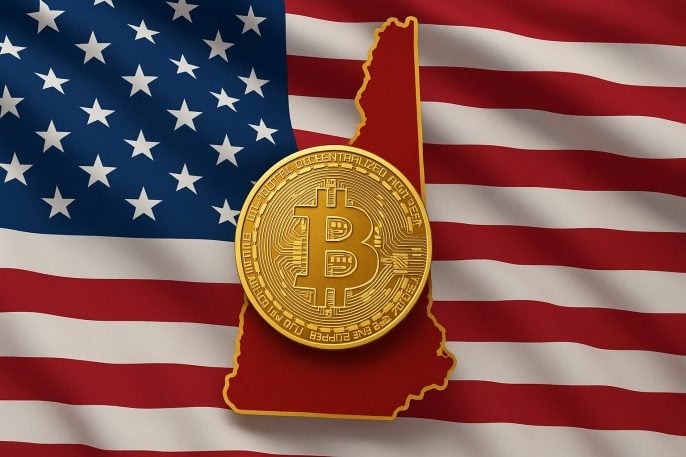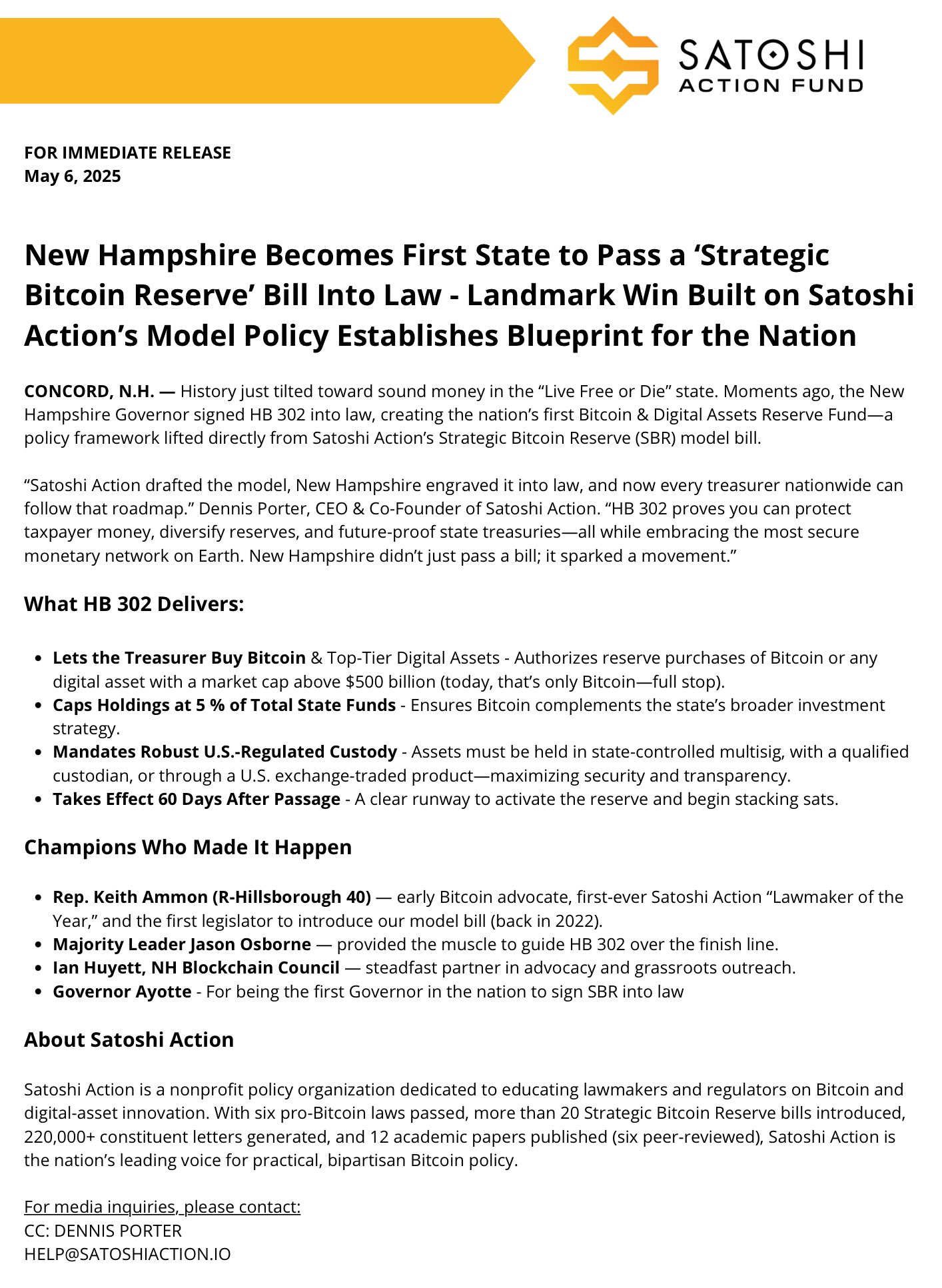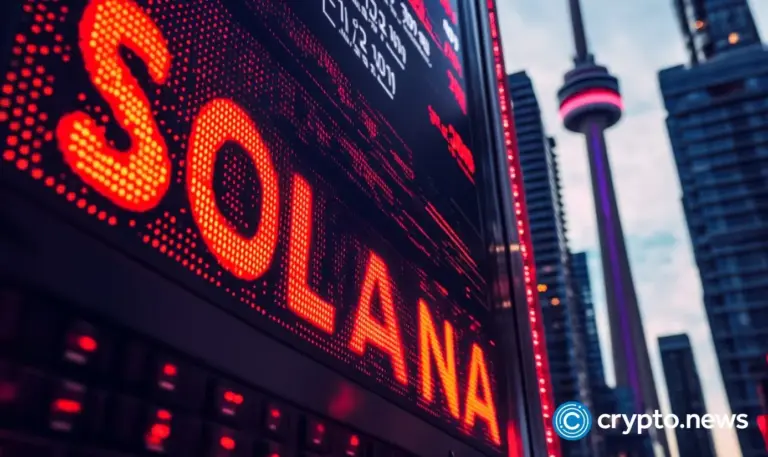
Key Takeaways
- New Hampshire is the first US state to establish a Bitcoin and Digital Assets Reserve Fund.
- The reserve allows up to 5% of total state funds to be held in Bitcoin or digital assets with over $500 billion market cap.
Share this article
New Hampshire is set to become the first US state to establish a strategic Bitcoin reserve following the passage of New Hampshire House Bill 302 (HB 302), which authorizes the state treasurer to allocate up to 5% of public funds to Bitcoin and other digital assets. Dennis Porter, CEO of Satoshi Action Fund, announced the news on May 7.

Introduced in January, HB 302 proposes allocating public funds into precious metals and top-tier digital assets with a market capitalization of over $500 billion, effectively paving the way for state-level Bitcoin investments. As of now, Bitcoin’s market cap is approximately $1.9 trillion, according to TradingView.
Under the new law, digital assets must be held using highly secure custody solutions, either directly by the state through a state-controlled multisig wallet, by a qualified custodian, or via US-regulated exchange-traded products (ETPs).
“Satoshi Action drafted the model, New Hampshire engraved it into law, and now every treasurer nationwide can follow that roadmap,” said Dennis Porter, CEO and Co-Founder of Satoshi Action. “HB 302 proves you can protect taxpayer money, diversify reserves, and future-proof state treasuries—all while embracing the most secure monetary network on Earth. New Hampshire didn’t just pass a bill; it sparked a movement.”
The bill was championed by Representative Keith Ammon, an early Bitcoin advocate and Satoshi Action’s “Lawmaker of the Year,” along with Majority Leader Jason Osborne who helped guide the legislation to passage.
The law will take effect 60 days after passage, establishing a framework for the state to begin acquiring digital assets for its reserves.
Other states like Arizona and Texas are considering similar crypto initiatives, but not all proposals have been approved.
Just last week, Arizona Governor Katie Hobbs vetoed a bill that would have allowed the state to invest in Bitcoin and other digital assets. Senate Bill 1025, also known as the Arizona Strategic Bitcoin Reserve Act, aimed to allocate up to 10% of state treasury and pension assets to digital assets.
On Monday, two Bitcoin bills introduced in Florida, House Bill 487 (HB 487) and Senate Bill 550 (SB 550), were indefinitely postponed and withdrawn from consideration as the 2025 legislative session ended. These bills aimed to create a state-level strategic Bitcoin reserve by allowing certain state funds to be invested in Bitcoin, but they did not pass before the session was adjourned on May 2.
Share this article




